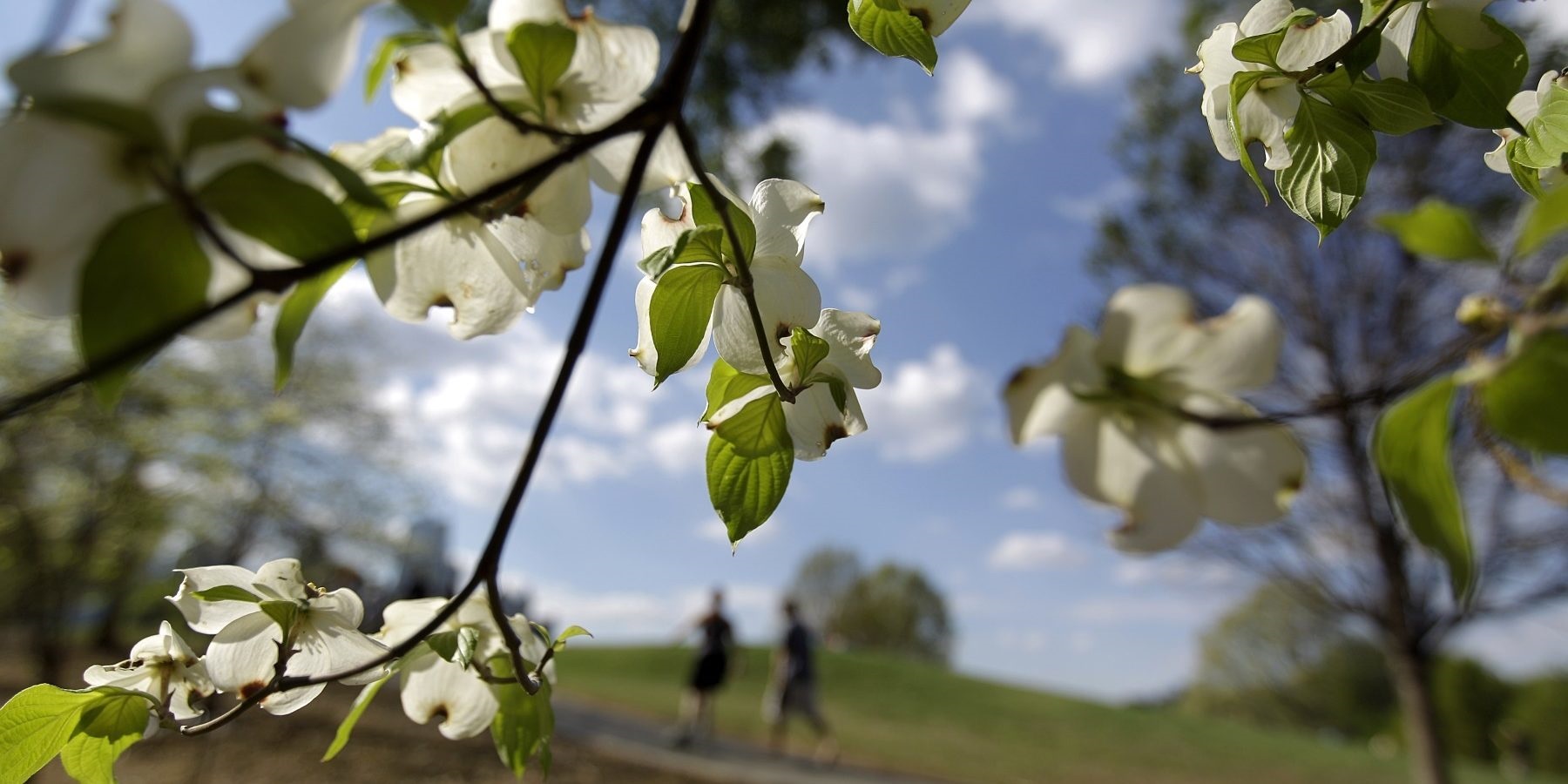Amendment 1 On Georgia Ballots Would Fund Conservation

Amendment 1 would create the Georgia Outdoor Stewardship Trust Fund. It would be money for agencies, local governments and nonprofits to use for conservation, such as creating parks or fixing up facilities at state parks, for example.
David Goldman / Associated Press file
It’s a divisive election year, with people hunkered down on opposing sides, but there’s one item on the Georgia ballot that’s pretty uncontroversial.
If it passes, Amendment 1 on the ballot would create the Georgia Outdoor Stewardship Trust Fund. It’d be a pot of money for agencies, local governments and nonprofits to use for conservation: for creating parks, or protecting wildlife habitat or land around military bases, or fixing up facilities at state parks.
“I think it’s great,” said Meg McCarron as she headed into an REI with her 4-year-old daughter May. “We go camping a lot, and my husband fishes.”
She hadn’t actually heard about the Georgia Outdoor Stewardship Amendment, but it’s people like her who would help fund it because the money would come from a sales tax collected at sporting goods stores.
“Amendment 1 is a historic opportunity for Georgia voters to dedicate a portion of an existing sales tax for land and water conservation,” said Robert Ramsay, president of the Georgia Conservancy and chair of the George Outdoor Stewardship Amendment campaign.
He emphasized it wouldn’t increase the sales tax. Instead, it would set aside some of what’s already collected, adding up to about $20 million a year for the next 10 years. Agencies and nonprofits could apply for the money, and a board would pick which projects to fund. The money would not be allowed to be used for other things, but if sales tax revenue goes down, the state could decide to set less of it aside.
“We could apply for a grant to renovate lodging facilities at Georgia state parks in the metro area,” said Wes Robinson, director of public affairs for the Georgia Department of Natural Resources. “It could mean protecting land for critical wildlife habitat in South Georgia. It could mean protecting important river corridors.”
The outdoor industry supports the idea, too.
“We think it’s very innovative and could be a very good model moving forward,” said David Weinstein, state and local policy director for Outdoor Industry Association, which endorsed the measure.
Other states have programs to fund conservation – Alabama uses revenue from offshore oil leases, for instance, and Colorado uses the state lottery – but Weinstein said he hasn’t previously seen the approach that Georgia is proposing, with money set aside from sales tax.
Right now, Georgia does fund conservation through the state Department of Natural Resources, but that agency along with others saw their budgets cut at the beginning of the Great Recession.
“We saw across all agencies significant budget cuts,” said Ramsay. “On the one hand, I’ll say we’ve done as well as I think we could have given the circumstances, and conservation was never an afterthought. But we have a little bit of catching up to do.”
There has been some opposition online from people saying they’re planning on voting no on all of Georgia’s ballot measures. But at the state Capitol earlier this year, the bill that created this proposal was bipartisan and popular — only one legislator voted against it.








